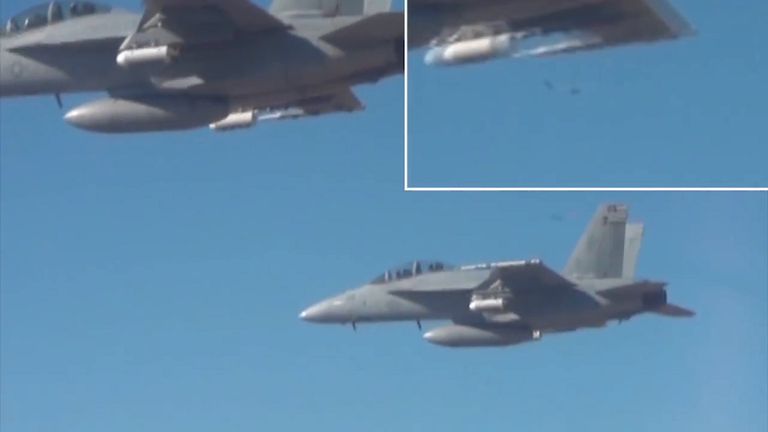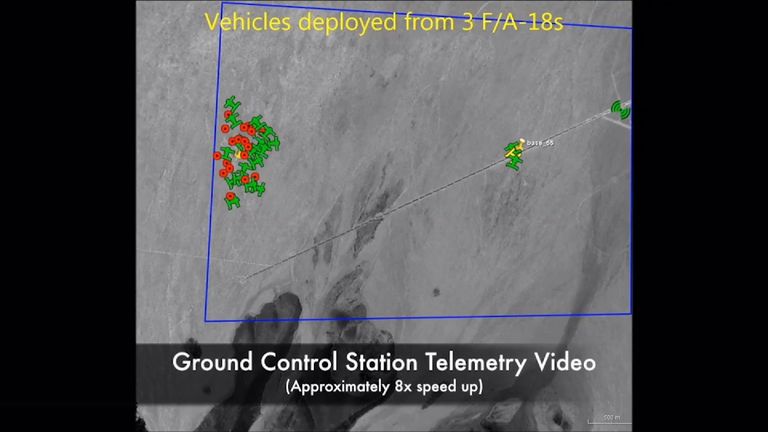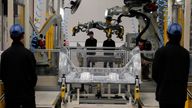US tests 'swarm' of 'self-healing' drones in California
The drones show "advanced swarm behaviors such as collective decision-making (and) adaptive formation flying", the Pentagon says.
Tuesday 10 January 2017 20:06, UK
The United States has tested a "swarm" of micro-drones - possibly previewing the future development of intelligent, autonomous weapons systems.
Just over 100 Perdix micro-drones were dropped from three F/A-18 Super Hornet fighter jets over California in October.
The idea is that in future, groups of the small, 16cm machines may be able to overwhelm opponents' defences with sheer numbers.
While they would act together under human direction, they appear to be able to think for themselves.
"The micro-drones demonstrated advanced swarm behaviors such as collective decision-making, adaptive formation flying and self-healing," the Pentagon said.
The test confirmed the drones' reliability under potential deployment conditions - such as speeds of Mach 0.6, and a temperature of -10C.
William Roper, director of the Pentagon's Strategic Capabilities Office (SCO), said: "Perdix are not pre-programmed synchronized individuals.
"They are a collective organism, sharing one distributed brain for decision-making and adapting to each other like swarms in nature."
He added: "Because every Perdix communicates and collaborates with every other Perdix, the swarm has no leader and can gracefully adapt to drones entering or exiting the team."
But Mr Roper said humans would always be involved, while the technology would empower people to make better decisions more quickly.
Secretary of Defense Ash Carter, who created the SCO in 2012, said: "This is the kind of cutting-edge innovation that will keep us a step ahead of our adversaries.
"This demonstration will advance our development of autonomous systems."




